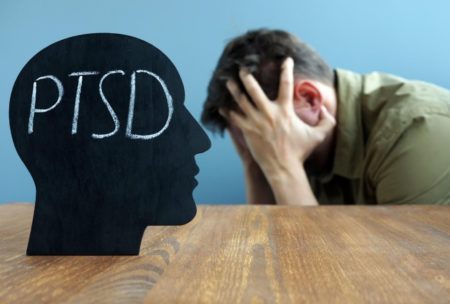This course is designed for those interested to learn options for moving forward. Methods and techniques from all of these evidence-based approaches are brought together into one course as a way of allowing you to explore a variety of methods you might find helpful in your journey toward recovery. Read more.
Access all courses in our library for only $9/month with All Access Pass
Get Started with All Access PassBuy Only This CourseAbout This Course
Who this course is for:
- Those who want to heal from trauma and or depression
What you’ll learn:
- Manage your anxiety and stop avoiding certain situations
- Cope with painful memories and nightmares
- Determine if you need to see a therapist
- Develop a support system to help you heal and move forward
Requirements:
- No prior knowledge is required to take this course
If you’ve experienced a traumatic event, you may feel a wide range of emotions such as anxiety, anger, fear, and depression. The truth is that there is no right or wrong way to react to trauma; but there are ways that you can heal from your experience, and uncover your own capacity for resilience, growth, and recovery.
Overcoming trauma and post-traumatic stress disorder (PTSD) offers proven-effective treatments based on acceptance and commitment therapy (ACT), dialectical behavior therapy (DBT), and cognitive-behavioral therapy (CBT) to help you overcome both the physical and emotional symptoms of trauma and PTSD. This course will help you find relief from painful flashbacks, insomnia, or other symptoms you might be experiencing. Also included are worksheets, checklists, and exercises to help you start feeling better and begin your journey on the road to recovery.
This course is divided into three parts, each with several lectures.
Part 1 will help you understand what traumatic events are, and will also give you an overview of common psychological and physical reactions to experiencing trauma.
Part 2 goes into the specifics of how to manage the symptoms of PTSD. This part of the course contains many exercises, which have been divided up by the type of symptoms you are experiencing. Your symptoms may include painful flashbacks and difficult memories about a traumatic event or events; a pattern of avoiding trauma-related situations and triggers; and a sense of being overwhelmed by or having difficulty with emotions and relationships.
Part 3 discusses ways to get more professional help if you need it. It also explores ways to get more support and take care of your physical health, particularly after you have had some relief of your current symptoms.
Personal Disclaimer: This course is not a substitute for professional help of medicine, certified therapist, or counselor nor is it a substitute for University approved courses. I am a Certified CBT Practitioner from Achology The Academy for Modern Applied Psychology. This course is based on the workbook by Sheela Raja Ph.D. The worksheets provided in this course are taken from the same workbook. By enrolling and applying this advice you agree to take 100% responsibility for all consequences. The certificate of completion doesn’t hold any value other than what this platform claims. The student agrees to purchase this course with full knowledge of the above facts.
Our Promise to You
By the end of this course, you will have learned how to deal with PTSD and trauma.
10 Day Money Back Guarantee. If you are unsatisfied for any reason, simply contact us and we’ll give you a full refund. No questions asked.
Get started today and learn more about ways to overcome PTSD and trauma.
Course Curriculum
| Section 1 - Introduction | |||
| Introduction | 00:00:00 | ||
| Approach To The Course | 00:00:00 | ||
| Downloadable Worksheets | 00:00:00 | ||
| Section 2 - Trauma | |||
| Overview | 00:00:00 | ||
| What Is Trauma? | 00:00:00 | ||
| What Is PTSD? | 00:00:00 | ||
| How Are Traumatic Memories Processed? | 00:00:00 | ||
| Physical And Health Issues Associated With Trauma | 00:00:00 | ||
| Thinking About Coping With PTSD And Trauma | 00:00:00 | ||
| Section 3 - Integrating CBT, DBT, ACT Techniques Into Your Life | |||
| Integrating CBT, DBT, ACT Overview | 00:00:00 | ||
| What is Cognitive Behavioral Therapy? | 00:00:00 | ||
| ABC Model - Thought, Emotions And Behavior | 00:00:00 | ||
| Understanding Feedback Loops | 00:00:00 | ||
| Behavioral Coping | 00:00:00 | ||
| Exposure Therapy For PTSD And Trauma | 00:00:00 | ||
| Stress Inoculation Training For PTSD And Trauma | 00:00:00 | ||
| Cognitive Processing Therapy PTSD And Trauma | 00:00:00 | ||
| What Is Dialectical Behavior Therapy? | 00:00:00 | ||
| What is Acceptance and Commitment Therapy? | 00:00:00 | ||
| ACT in Action! 6 Core Processes | 00:00:00 | ||
| Common Elements of CBT, DBT And ACT | 00:00:00 | ||
| Section 4 - Managing Your Anxiety And PTSD | |||
| Building A Strong Foundation: Breathing | 00:00:00 | ||
| Abdominal Breathing For Anxiety | 00:00:00 | ||
| Focusing On Your Body | 00:00:00 | ||
| Progressive Muscle Relaxation | 00:00:00 | ||
| Relaxation Without Tension | 00:00:00 | ||
| Cue Controlled Relaxation | 00:00:00 | ||
| Using Your Mind To Relax And Develop Awareness | 00:00:00 | ||
| Decreasing The Power Of Negative Thoughts | 00:00:00 | ||
| Section Conclusion | 00:00:00 | ||
| Section 5 - Stop Avoiding And Start Living Again | |||
| Section Introduction | 00:00:00 | ||
| Finding Your Own Motivation After Trauma | 00:00:00 | ||
| Using Metaphors To Help Bring About Change | 00:00:00 | ||
| Facing Your Traumatic Emotions | 00:00:00 | ||
| Developing Mindfulness | 00:00:00 | ||
| Challenging Yourself to Face Your Fears | 00:00:00 | ||
| Building Emotional Connections | 00:00:00 | ||
| Decreasing PTSD Symptoms Through Writing | 00:00:00 | ||
| Section 6 - Handling Difficult Thoughts Of Trauma | |||
| 8 Limited Thinking Patterns from CBT | 00:00:00 | ||
| Filtering | 00:00:00 | ||
| Polarized Thinking | 00:00:00 | ||
| Overgeneralization | 00:00:00 | ||
| Mind Reading | 00:00:00 | ||
| Catastrophizing | 00:00:00 | ||
| Magnifying | 00:00:00 | ||
| Personalization | 00:00:00 | ||
| Shoulds | 00:00:00 | ||
| Composing Balanced Alternative Thoughts | 00:00:00 | ||
| Section 7 - Coping with Memories, Flashbacks, Nightmares, and Intrusions | |||
| Coping With Memories, Flashbacks, Nightmares, And Intrusions | 00:00:00 | ||
| Invalidating Thoughts | 00:00:00 | ||
| Mindfulness And Grounding | 00:00:00 | ||
| Imagery Rehearsal for Nightmares | 00:00:00 | ||
| Developing Wise Mind | 00:00:00 | ||
| Do You Need Professional Help? | 00:00:00 | ||
| Section 8 - BONUS: Maintaining Mental And Physical Health | |||
| Maintaining Health | 00:00:00 | ||
| Cognitive Defusion | 00:00:00 | ||
| Self As Context | 00:00:00 | ||
| Daily Routines | 00:00:00 | ||
| PLEASED | 00:00:00 | ||
| Emotions On Continuum | 00:00:00 | ||
| Opposite To Emotions | 00:00:00 | ||
| Mood Momentum | 00:00:00 | ||
| Section 9 - Conclusion | |||
| Conclusion | 00:00:00 | ||
About This Course
Who this course is for:
- Those who want to heal from trauma and or depression
What you’ll learn:
- Manage your anxiety and stop avoiding certain situations
- Cope with painful memories and nightmares
- Determine if you need to see a therapist
- Develop a support system to help you heal and move forward
Requirements:
- No prior knowledge is required to take this course
If you’ve experienced a traumatic event, you may feel a wide range of emotions such as anxiety, anger, fear, and depression. The truth is that there is no right or wrong way to react to trauma; but there are ways that you can heal from your experience, and uncover your own capacity for resilience, growth, and recovery.
Overcoming trauma and post-traumatic stress disorder (PTSD) offers proven-effective treatments based on acceptance and commitment therapy (ACT), dialectical behavior therapy (DBT), and cognitive-behavioral therapy (CBT) to help you overcome both the physical and emotional symptoms of trauma and PTSD. This course will help you find relief from painful flashbacks, insomnia, or other symptoms you might be experiencing. Also included are worksheets, checklists, and exercises to help you start feeling better and begin your journey on the road to recovery.
This course is divided into three parts, each with several lectures.
Part 1 will help you understand what traumatic events are, and will also give you an overview of common psychological and physical reactions to experiencing trauma.
Part 2 goes into the specifics of how to manage the symptoms of PTSD. This part of the course contains many exercises, which have been divided up by the type of symptoms you are experiencing. Your symptoms may include painful flashbacks and difficult memories about a traumatic event or events; a pattern of avoiding trauma-related situations and triggers; and a sense of being overwhelmed by or having difficulty with emotions and relationships.
Part 3 discusses ways to get more professional help if you need it. It also explores ways to get more support and take care of your physical health, particularly after you have had some relief of your current symptoms.
Personal Disclaimer: This course is not a substitute for professional help of medicine, certified therapist, or counselor nor is it a substitute for University approved courses. I am a Certified CBT Practitioner from Achology The Academy for Modern Applied Psychology. This course is based on the workbook by Sheela Raja Ph.D. The worksheets provided in this course are taken from the same workbook. By enrolling and applying this advice you agree to take 100% responsibility for all consequences. The certificate of completion doesn’t hold any value other than what this platform claims. The student agrees to purchase this course with full knowledge of the above facts.
Our Promise to You
By the end of this course, you will have learned how to deal with PTSD and trauma.
10 Day Money Back Guarantee. If you are unsatisfied for any reason, simply contact us and we’ll give you a full refund. No questions asked.
Get started today and learn more about ways to overcome PTSD and trauma.
Course Curriculum
| Section 1 - Introduction | |||
| Introduction | 00:00:00 | ||
| Approach To The Course | 00:00:00 | ||
| Downloadable Worksheets | 00:00:00 | ||
| Section 2 - Trauma | |||
| Overview | 00:00:00 | ||
| What Is Trauma? | 00:00:00 | ||
| What Is PTSD? | 00:00:00 | ||
| How Are Traumatic Memories Processed? | 00:00:00 | ||
| Physical And Health Issues Associated With Trauma | 00:00:00 | ||
| Thinking About Coping With PTSD And Trauma | 00:00:00 | ||
| Section 3 - Integrating CBT, DBT, ACT Techniques Into Your Life | |||
| Integrating CBT, DBT, ACT Overview | 00:00:00 | ||
| What is Cognitive Behavioral Therapy? | 00:00:00 | ||
| ABC Model - Thought, Emotions And Behavior | 00:00:00 | ||
| Understanding Feedback Loops | 00:00:00 | ||
| Behavioral Coping | 00:00:00 | ||
| Exposure Therapy For PTSD And Trauma | 00:00:00 | ||
| Stress Inoculation Training For PTSD And Trauma | 00:00:00 | ||
| Cognitive Processing Therapy PTSD And Trauma | 00:00:00 | ||
| What Is Dialectical Behavior Therapy? | 00:00:00 | ||
| What is Acceptance and Commitment Therapy? | 00:00:00 | ||
| ACT in Action! 6 Core Processes | 00:00:00 | ||
| Common Elements of CBT, DBT And ACT | 00:00:00 | ||
| Section 4 - Managing Your Anxiety And PTSD | |||
| Building A Strong Foundation: Breathing | 00:00:00 | ||
| Abdominal Breathing For Anxiety | 00:00:00 | ||
| Focusing On Your Body | 00:00:00 | ||
| Progressive Muscle Relaxation | 00:00:00 | ||
| Relaxation Without Tension | 00:00:00 | ||
| Cue Controlled Relaxation | 00:00:00 | ||
| Using Your Mind To Relax And Develop Awareness | 00:00:00 | ||
| Decreasing The Power Of Negative Thoughts | 00:00:00 | ||
| Section Conclusion | 00:00:00 | ||
| Section 5 - Stop Avoiding And Start Living Again | |||
| Section Introduction | 00:00:00 | ||
| Finding Your Own Motivation After Trauma | 00:00:00 | ||
| Using Metaphors To Help Bring About Change | 00:00:00 | ||
| Facing Your Traumatic Emotions | 00:00:00 | ||
| Developing Mindfulness | 00:00:00 | ||
| Challenging Yourself to Face Your Fears | 00:00:00 | ||
| Building Emotional Connections | 00:00:00 | ||
| Decreasing PTSD Symptoms Through Writing | 00:00:00 | ||
| Section 6 - Handling Difficult Thoughts Of Trauma | |||
| 8 Limited Thinking Patterns from CBT | 00:00:00 | ||
| Filtering | 00:00:00 | ||
| Polarized Thinking | 00:00:00 | ||
| Overgeneralization | 00:00:00 | ||
| Mind Reading | 00:00:00 | ||
| Catastrophizing | 00:00:00 | ||
| Magnifying | 00:00:00 | ||
| Personalization | 00:00:00 | ||
| Shoulds | 00:00:00 | ||
| Composing Balanced Alternative Thoughts | 00:00:00 | ||
| Section 7 - Coping with Memories, Flashbacks, Nightmares, and Intrusions | |||
| Coping With Memories, Flashbacks, Nightmares, And Intrusions | 00:00:00 | ||
| Invalidating Thoughts | 00:00:00 | ||
| Mindfulness And Grounding | 00:00:00 | ||
| Imagery Rehearsal for Nightmares | 00:00:00 | ||
| Developing Wise Mind | 00:00:00 | ||
| Do You Need Professional Help? | 00:00:00 | ||
| Section 8 - BONUS: Maintaining Mental And Physical Health | |||
| Maintaining Health | 00:00:00 | ||
| Cognitive Defusion | 00:00:00 | ||
| Self As Context | 00:00:00 | ||
| Daily Routines | 00:00:00 | ||
| PLEASED | 00:00:00 | ||
| Emotions On Continuum | 00:00:00 | ||
| Opposite To Emotions | 00:00:00 | ||
| Mood Momentum | 00:00:00 | ||
| Section 9 - Conclusion | |||
| Conclusion | 00:00:00 | ||




Helpful
Good basic course that helps to understand symptoms of PTSD and how to cope with them.
Informative and Useful
I really enjoyed this course. Aman really lays out a self discovery examination that can benefit anyone who is coping with PTSD and Trauma or for someone wanting to learn about it for personal development.